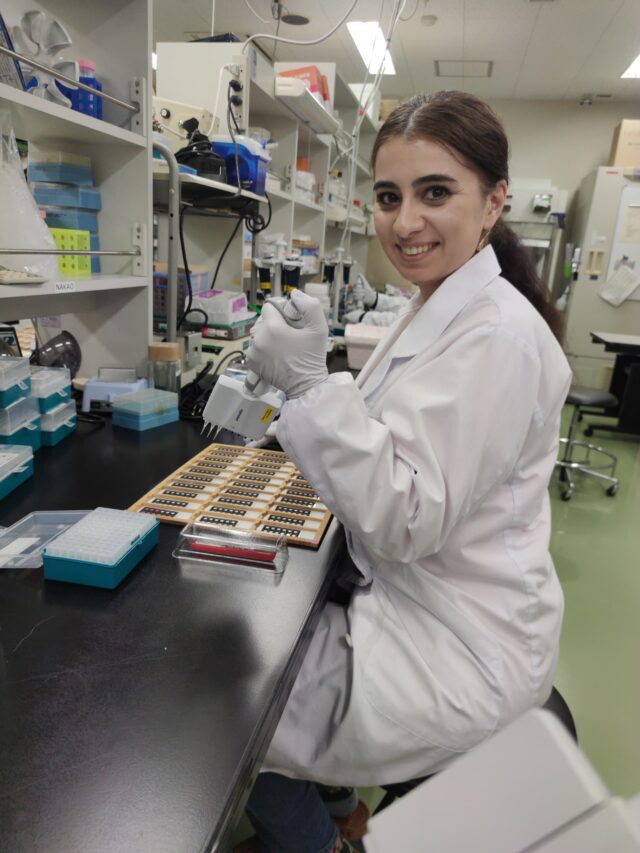Name: Kamarli Aitakin
Affiliation: Kyrgyz Research Institute of Veterinary named after Arstanbek Duisheev, 60, Togolok Moldo st., 720033, Bishkek, Kyrgyzstan
Position: Researcher
Term: September 2024 – December 2024
Host researcher: Prof. Naoaki Yokoyama

Circumstances of application:
Tick-borne diseases are widespread in Kyrgyzstan, yet their control is challenging due to limited expertise and research. To address this issue, we recently established a research collaboration with the NRCPD, formalized through a Memorandum of Understanding (MoU). As part of this collaboration, we conducted a nationwide survey of cattle and horses and identified several tick-borne hemoprotozoan parasites. However, no studies have been conducted on Babesia species that cause human babesiosis in Kyrgyzstan. To fill this gap, I applied for the position of foreign visiting researcher at the NRCPD to survey zoonotic Babesia species endemic in Kyrgyzstan.
Research activity in NRCPD:
A total of 394 questing ticks were collected from various locations in six provinces of Kyrgyzstan. The collection included 329 adult ticks (318 Haemaphysalis punctata, 2 H. sulcata, 2 Rhipicephalus sanguineus, 2 Hyalomma dromedarii, 1 Hyalomma rufipes, 3 Dermacentor marginatus, and 1 D. silvarum), 2 nymphs (H. sulcata), and 63 larvae. DNA was extracted from all ticks and subjected to three 18S rRNA-based PCR assays to detect: 1) Babesia microti/B. duncani, 2) B. divergens/B. venatorum/B. odocoilei, and 3) B. crassa-like/Babesia sp. KO1 groups. The results revealed that 17 adult H. punctata ticks and 24 larvae tested positive for B. microti/B. duncani. No other Babesia species were detected. Sequencing analysis confirmed that all 41 positive ticks were infected with B. microti, specifically the Munich type (n=37) and the US type (n=4). The detection of the US type of B. microti highlights the urgent need to raise awareness about human babesiosis in Kyrgyzstan.
Future prospects:
In with the NRCPD, I plan to continue the survey of zoonotic Babesia species in ticks and identify potential animal reservoirs. Additionally, I will formally report these findings to the relevant government agencies in Kyrgyzstan to facilitate appropriate public health interventions.
